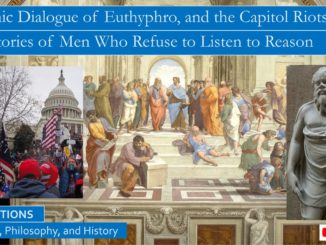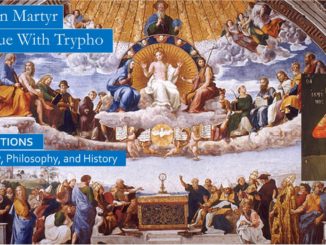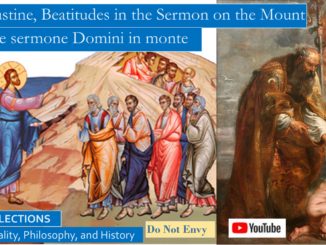
Plato: Euthyphro, Who Won’t Listen
Socrates has been charged by the citizens of Athens of impiety, of corrupting the youth, and in preparation he must go to the porch of the King Archon. There he meets his friend, Euthyphro, and they converse about the serious charges filed against Socrates, and the serious charges Euthyphro intends against, surprisingly, his very own father. Socrates senses that his friend has little idea of the consequences of this action, and that his youthful haste may lead to a miserable and penurious future, and that his friend has pondered little of this drastic action. […]




